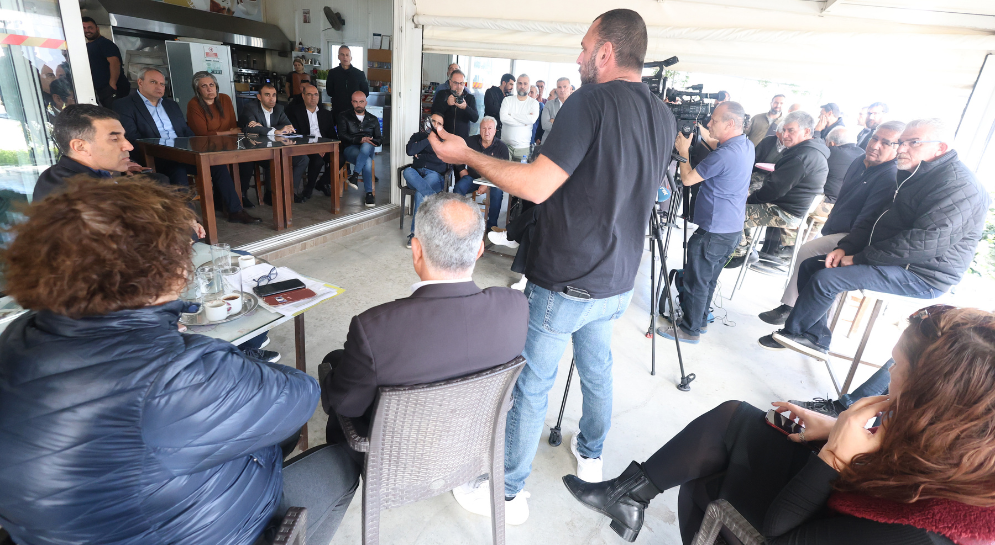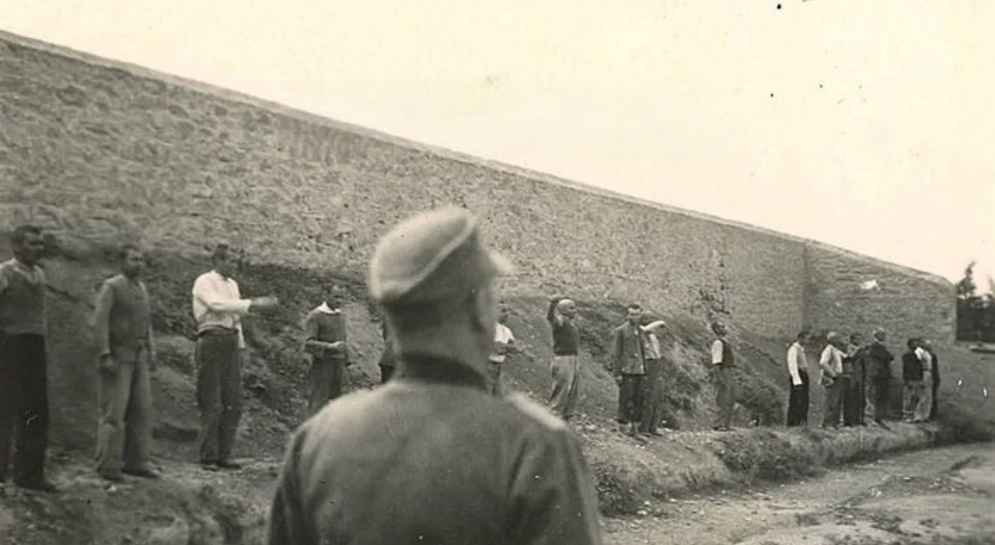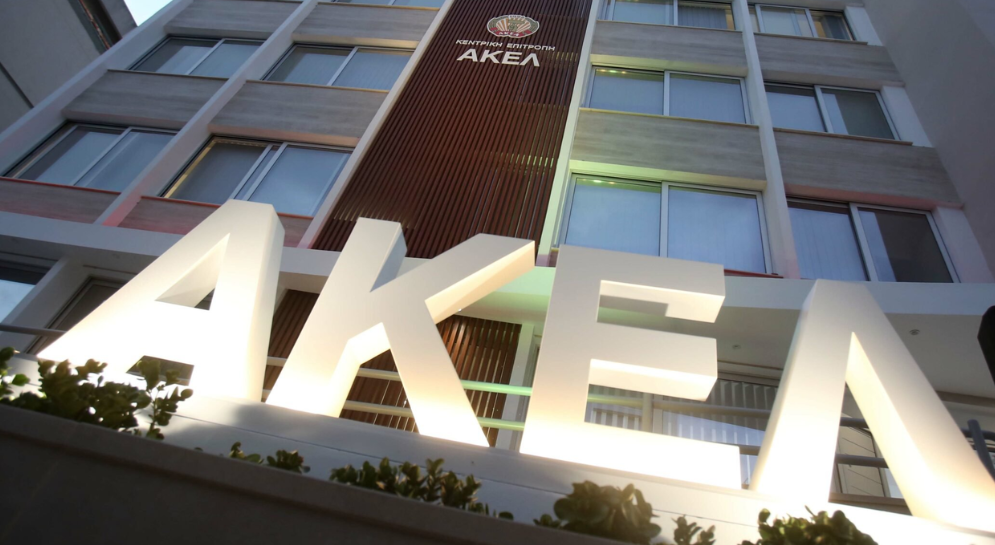
Speech by AKEL MEP Giorgos K. Georgiou at the conference on “The new European Cancer Strategy and Cypriot reality”
19 February 2022, AKEL C.C. Press Office
I too would also like to thank you from the bottom of my heart for being here today, strengthening our common fight against cancer. The battle we are waging, each of us from our own perspective, becomes even more important in the context of a pandemic, as the public health sector is suffering a major blow with a knock-on effect on cancer patients.
Cancer has become the second cause of death in Europe. 1.3 million of our fellow human beings lose the battle every year. Of these, 6,000 are children. However, 40% of cancers can be prevented and with prompt treatment cancer can even be cured.
A year and a half ago, we, as AKEL, asserted our participation in the European Parliament’s Special Committee on Beating Cancer (BECA). We subsequently had the honor of being entrusted by the European Left Group with monitoring the report of that committee on the new European cancer control strategy. As the shadow Rapporteur of the report, I addressed you, on behalf of AKEL, so that we could work together to ensure that the new strategy truly responds to the needs of cancer patients, offering effective solutions to the various problems and promoting comprehensive proposals to strengthen prevention and early diagnosis.
After intense deliberations, we have succeeded in having an overall report with very important references approved by an overwhelming majority in the plenary of the European Parliament. The text is inspired by the humanist principles that we had set out as the Left.
To begin with, the report recognises the social injustice that exists in the field of cancer care, pointing out that the variation in cancer survival rates across EU member states exceeds 25%. It therefore sets as a key objective the fight against inequalities regarding prevention, early diagnosis, access to quality care and the possibility of reintegration into society. It also stresses the urgent need for a European charter of rights for cancer patients at every stage of treatment.
Particular reference is made to the need for the European Commission to promote the establishment of at least one integrated National Cancer Centre in each member state, and to support the coordination of the network of such centres in order to facilitate the adoption of quality diagnostic and treatment methods, including training, research and the promotion of clinical trials throughout the EU.
Of course, sufficient funding is needed to achieve the objectives set out above. The report therefore calls on member states to increase their budgets on fighting cancer. It also underlines that the European funding plan of EUR 4 billion is only a first step and calls for more funds to be made available in order to strengthen cancer prevention and cancer research, particularly concerning childhood cancer. Indeed, it supports the launch of a new EU-funded cancer screening scheme which will help member states to ensure that 90 % of the EU population eligible for screening for breast, cervical and colorectal cancer are screened by 2025.
In the same positive direction are the proposals promoted by the report to immediately address the deficiencies in the health sector through new recruitment of labour force and, in particular, through the development of common training programmes for health professionals. At the same time, the need to improve e-health technologies and telemedicine services, as well as outpatient cancer treatments, is also highlighted, in order to maintain the quality of life of patients.
With regard to medicines, the report rightly stresses that cancer patients are often affected by drug shortages and profit speculation in prices. It therefore calls on member states to work together to prevent drug shortages and asks the Commission to revise Directive 89/105/EEC on the transparency of measures regulating the prices of medicinal products in order to ensure effective controls. It also calls on pharmaceutical companies to provide information on tax breaks, subsidies and funding they receive from public resources.
As the Group of the Left, we have also asked for a reference to be added that it is necessary for the Commission to discourage practices that extend the exclusiveness of the market, prolong intellectual property protection and lead to the maximisation of profit through the strategic use of intellectual property rights and to promote competition for generic medicines for rare diseases that are not covered by patents. Unfortunately, however, the EPP Group, together with the far-right and conservative groups in the EP, voted against our proposal and so it was not incorporated into the final report. The DISY MEPs, on such an important issue, chose to abstain.
The report also focuses in particular on the need to reform the directive on cross-border care in order to facilitate the mobility process and to address the lack of clarity regarding the coverage of costs related to participation in clinical trials. It is particularly positive that the report points out that all costs relating to treatment should be financed before the start of treatment, in order to avoid the exclusion of patients on low incomes. However, this is not enough. The costs required for travel and accommodation abroad are prohibitive, especially for parents who give up their jobs to accompany their sick child.
For the Group of the Left, it is unthinkable and inhumane for parents who are fighting a daily battle for survival with their child to have to deal with the financial anguish of travel and, ultimately, to depend on charity. That is precisely why we have tabled a specific amendment calling for financial support to be provided by the state, particularly to parents on low incomes who accompany their child for treatment abroad. Although the EPP, the extreme right and the conservatives voted against the proposal, we managed to get it voted through by the majority of MEP’s and it was thus finally incorporated into the report.
To support parents and relatives, we tabled another amendment, calling on member states to consider, among other options, increasing the number of days of paid leave that parents and relatives can take to support a family member suffering from cancer, as well as providing a care allowance for direct relatives corresponding to 100% of their earnings. Unfortunately, however, the political groups of the European People’s Party, the extreme right and the Liberals, together with the Greens, voted against our proposal, which is why we were unable to incorporate it into the final text.
Despite the difficulties we encountered, we have succeeded in adopting many other amendments that we tabled, which have covered important shortcomings that originally existed in the draft report.
In particular, our proposals that were voted through call for, among other things, the following:
- Investment in the public health sector, as the main lesson we have learned from the pandemic.
- Strengthen public health services (including budgetary aspects, infrastructure and aspects relating to health professionals) to accelerate cancer prevention, screening and diagnosis
- Establishment of high-quality radiotherapy departments and modern oncology centres in public hospitals
- Increase funding to member states to expand their radiotherapy infrastructures and ensure equitable access to quality radiotherapy
- Ensure outpatient cancer treatment and care in outpatient settings.
- Provide free access to cancer treatments and medicines used by cancer patients through public health services and promote policies for free access to medicines for users over 65 years of age, chronic patients and families facing financial difficulties.
- Provide psychosocial support to patients and their families.
- Enhancing the quality of life of patients.
- Strengthening the right to cross-border care.
- Promoting the development of new pediatric anti-cancer medicines.
- Increase funding for pediatric cancer and other rare cancers.
- Increase funding and promote legislative measures by the European Commission to address the inequalities that lead to a difference of up to 20% in survival rates for children with cancer between member states, and to ensure equal rights for all children across the EU;
- Promote targeted screening for high-risk groups.
- Develop multidisciplinary treatment teams to support cancer patients throughout their treatment course.
All these proposals have now been included in the official report of the European Parliament, rendering it a very important tool in our hands.
What is needed now is for the report to find a sympathetic ear, both in the Commission and in member states, and for practical political will to be demonstrated so that our proposals are put into action.
Particularly with regards pediatric cancer, we also look forward to the results of the implementation of our two proposals adopted by the plenary of the European Parliament 6 months ago for 2022. More specifically, we have called for €1.3 million to be allocated from the 2022 Community budget for the creation of a platform that will include, in digital format, data from all member states that can contribute to improving diagnosis and developing new treatments for pediatric cancer, and €3 million to create a pilot programme to assess the nutritional status of children with cancer, with the aim of promoting nutritional approaches that support the treatment effort.
Dear friends,
Each of us is making our own contribution to our common struggle. However, the most important thing is for governments to move from empty talk and grandiose promises to action.
Our struggle is not easy, but we will continue, tirelessly and relentlessly, to ensure that health ceases to be a privilege of the few and is ensured as a public, social good and a human right for all.




